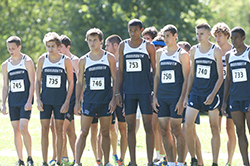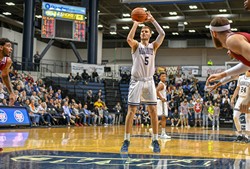It is one day before a highly anticipated Final Four game. The Kentucky Wildcats are set to take on the Louisville Cardinals. At stake is a trip to the Championship Game and the ability to be the talk-of-the-town. An entrance to college basketball’s biggest game surely must rile the nerves of players, coaches, athletic directors, fans, family, etc. But, what’s really on the minds of the sport’s power-wielders? Business.
Mississippi State Athletic Director Scott Stricklin arranged a meeting with Kentucky assistant coach Kenny Payne last Friday, just 24 hours from Payne’s biggest game during his tenure with the Wildcats. The meeting was to discuss Payne’s basketball credentials and the possibility of him taking over the Mississippi State basketball team, recently left vacant by retired-coach Rick Stansbury.
Even in the tense heat of the NCAA tournament, programs are on the search for the improvement of their team. Surely this is not a bad thing; we’d all like to see a well-run program. But the timing in some of these coaching searches just seems extremely disagreeable.
Payne was just hours away from helping John Calipari (one of the nation’s most renown coaches) guide his program to the championship game. But instead of X’s and O’s running through his mind, Stricklin got him thinking number of zeros in his paycheck.
From the dribble-drive motion offense to Mississippi State’s contractual offensive, Kenny Payne was forced to think about outside teams, financial well-being, his future, etc. where he should’ve been fully committed to helping Kentucky advance.
Sure Scott Stricklin acted out of Kentucky’s best interests, right? He claimed to be on the coaching offensive because of the MSU fan-base’s impatience with the search. He told Bulldog fans to be patient, but in this information-driven, tech savvy, media consuming world, fans want answers now. He was just doing his job, right? Getting out there, meeting with arguably the nation’s top assistant coach.
Well sure he was, the argument swings to both sides of the pendulum he was acting out of public interest. But from an ethical, job-loving standpoint, Stricklin should have waited until the Kentucky season was complete and Payne’s focus was not solely based on the Wildcats’ next game, film prep, scouting reports, etc. Even if that meant calling Payne and/or his representative and expressing interest, but not sitting down to talk technicalities until the season’s end. This, would’ve been the more respectable path.
In this ideal sequence of events, Stricklin would’ve let devotion come before dollar signs. Instead, the meeting at the Ritz was focused on Payne leaving his current team, and embracing a whole new cast of characters. In this case, as we’ve seen countless times is sports, the business overpowered the pride.
It really makes me cringe, this seemingly low-character move. What it shows me, is that financial stability is more important than joy one takes in the game. Maybe this is what the sport’s world is turning into just another business conglomerate. Sure, there is no written creed on the steps to take while hiring a new coach. But in all honesty, just wait the extra week to contact a coaching candidate. Let him/her finish out your tenure before you force them to jump-ship, and most importantly recognize the moral consequences for what you’re doing.
In the Payne case, I’m sure the idea of questionable program-devotion came up in the locker room, and ideas of lower credibility popped up. Again, I’m not in the Wildcat locker room, but I can only assume that once an assistant expresses interest somewhere else, he no longer has a full-standing within the program. Then again, this instance could be a lone-wolf case…
Payne established himself at Oregon as a member of the coaching staff with notable help from basketball representative William Wesley. Two years ago, Payne moved to Kentucky to coach with John Calipari. Because of Wesley’s controversial history and high-paid connections, and Payne’s lack of head-coaching experience, maybe the move stemmed from a strategy of immediacy. Grab the job, earn the check, clear the name, and lead the team to success. Could this be the mindset?
As much as I may question this event, it’s hard to deny the power of the business aspect of sports. My prediction for the future of sports definitely does not involve some sort of utopian atmosphere. Sadly, the dollar-signs will continue to drive devotion for decades to come. But hey, for Payne’s sake, we can only hope the offer was impressive.




